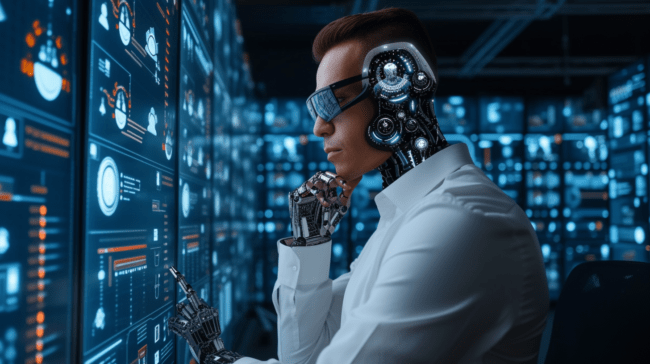Understanding Ethical AI Development
Artificial Intelligence holds immense potential for transforming industries, enhancing user experiences, and solving complex problems. However, with great power comes great responsibility. Ethical AI development is now more critical than ever to ensure that this powerful technology benefits humanity while minimizing harm.
Transparency
Transparency in AI systems involves being open about how algorithms make decisions. When users understand the workings of an AI system, they can trust it more. Transparency allows for accountability. If an AI system makes a mistake, knowing how it arrived at its decision helps in identifying and fixing the problem.
Accountability
It’s crucial to establish accountability in AI systems. This means having clear policies about who is responsible for the actions and outcomes of AI. Whether it’s the developers, the companies deploying the AI, or a combination of both, responsibility should be clearly outlined. Without accountability, ethical lapses can go unaddressed, leading to public mistrust.
Fairness
Fairness in AI is about creating systems that do not discriminate against any user. AI systems should be trained on diverse datasets to avoid biases that can lead to unfair treatment. Fair algorithms ensure that all users receive the same level of service and accuracy, regardless of their background.
Privacy
With the vast amounts of data AI systems process, privacy concerns are inevitable. Ethical AI respects user privacy by ensuring data is collected, stored, and processed securely. Only the necessary amount of data should be used, and measures should be in place to protect this data from unauthorized access.
Security
AI systems must be secure against hacks and malicious activities. Security measures should be integrated from the beginning, not added as an afterthought. Secure AI systems protect both the data they use and the integrity of their operations, ensuring reliable and safe outputs.
Sustainability
The sustainability of AI systems is often overlooked but is increasingly important. AI models can consume significant computing resources, leading to high energy usage. Ethical AI should strive for energy-efficient models that reduce the environmental footprint.
Beneficence
AI should be designed to benefit humans. This principle involves creating AI that improves quality of life, enhances human abilities, or solves critical problems. By focusing on positive outcomes, developers can ensure that AI contributes to the greater good.
Inclusive Design
AI systems should be designed inclusively, considering the needs of all potential users. This includes making systems accessible to people with disabilities and ensuring user interfaces are easy to navigate. Inclusive design helps in creating AI that everyone can use effectively.
Human Oversight
Although autonomous AI systems can operate without human intervention, human oversight remains essential. Humans should have the ability to intervene or override decisions made by AI, especially in critical situations. This ensures that AI decisions align with human values and societal norms.
Trustworthiness
Trustworthiness is overarching; it’s the culmination of all the other principles. When AI systems are transparent, accountable, fair, and secure, they become trustworthy. Trustworthy AI programs are more likely to be adopted and accepted by the public, leading to broader and more effective use.
Implementation Strategies
- Interdisciplinary Teams: Building ethical AI requires diverse expertise. Interdisciplinary teams that include ethicists, sociologists, and psychologists can provide insights that might be missed by purely technical teams.
- Ongoing Audits: Regular audits of AI systems can identify biases or ethical issues after deployment. These audits can be technical or involve user feedback.
- User Education: Educating users about how AI systems work and their ethical implications can help in building trust and ensuring responsible use.
- Ethical Guidelines: Adhering to established ethical guidelines and standards, such as those proposed by IEEE or the European Commission, provides a framework for development and deployment.
Conclusion
Ethical AI development is not a one-time effort but a continuous process involving multiple stakeholders. By adhering to these key principles, developers can create AI systems that are not only innovative but also responsible and equitable. As AI continues to evolve, maintaining a steadfast commitment to ethical principles will be crucial in ensuring that this powerful technology serves humanity in the best possible way.

